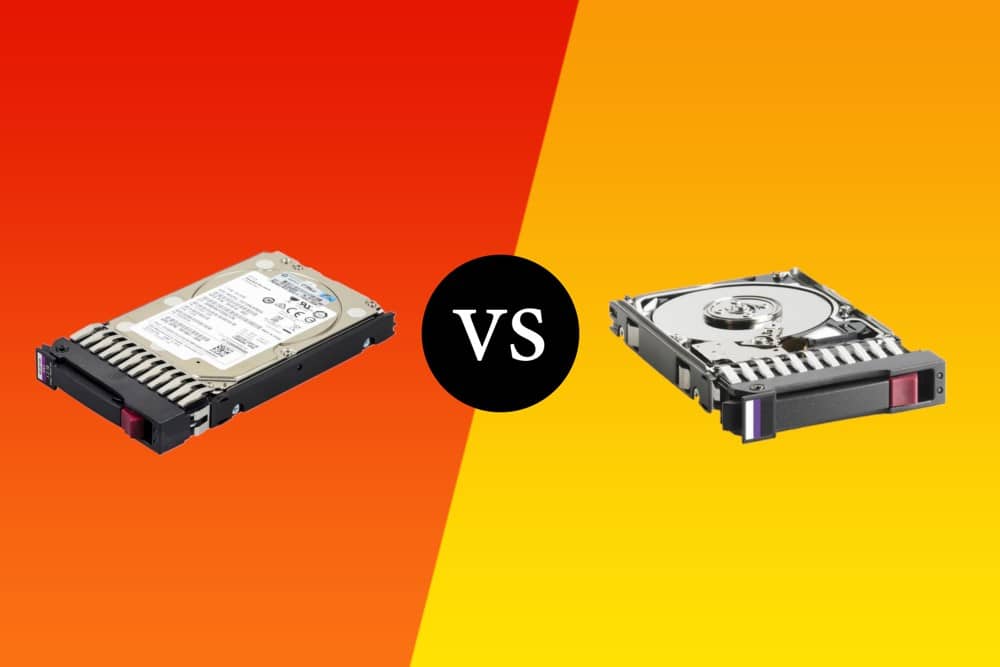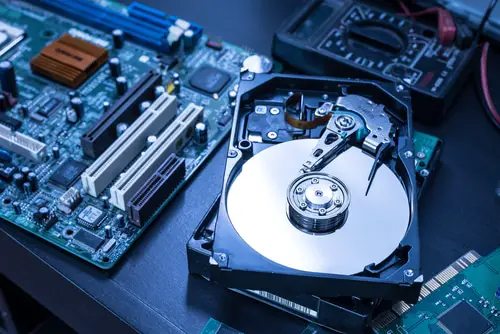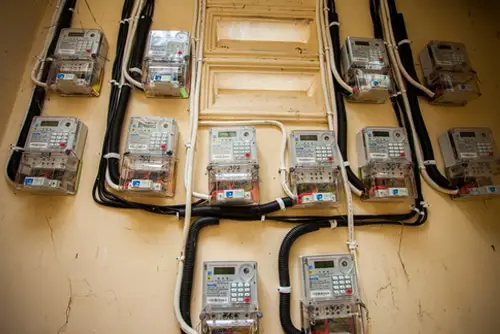
DISCLOSURE: This post may contain affiliate links, meaning when you click the links and make a purchase, we receive a commission.
Hard Drives have revolutionized the way we store and access information. Hard Drives are classified into two types: SFF and LFF, which many people aren’t usually aware of.
Both have their own pros and cons, so for someone who wants to purchase one, it can sometimes get quite confusing to determine which is the right choice.
In this guide, we’ll explore the features and benefits of each type of drive and provide you with the information you need to make an informed decision when selecting the best drive for your needs. So without further ado, let’s dive in and take a look at both these pieces of hardware!
Small Form Factor (SFF) Drive vs Large Form Factor (LFF) Drive
Whether you own a server that you’re looking to upgrade or are building a PC, you might want more clarity about the type of drive that would best suit your needs.
Keep in mind that neither of them is better than the other in every aspect, and ultimately, the choice between SFF and LFF Drives depends on the user’s specific needs.
Usage
To begin with, it is essential that you first determine why you want a drive in the first place. LFF drives are typically used in enterprise storage systems and servers, as well as in workstations and high-end PCs. They are also used in data centers and cloud storage solutions.
On the other hand, SFF drives are most commonly used in small-form-factor PCs, workstations, and servers. They are also used in laptops, Ultrabooks, and other mobile devices due to their small size, as well as for storage in NAS (network-attached storage) devices and surveillance systems.
So unless you’re the owner of a really huge server, an SFF drive would do the job for you. If you’re not satisfied, though, the option of getting an LFF drive is always on the table.
Price
If you don’t want to dig deep in your wallet, then SFF drives would be the better choice. Since SFF drives are typically used in servers (as mentioned previously) and are designed to occupy minimal space in a system, they are less expensive.
LFF drives are more expensive due to their larger physical size, requiring more physical material and components to produce the drive. This added cost is passed on to the consumer. Besides that, LFF drives tend to offer higher storage capacities than SFF, which also drives up their cost.
Durability/Reliability
Durability is always an important point to factor in, no matter what you’re looking to purchase. While It depends on the make and model of the drive. Generally, LFF drives are larger, heavier, and have more moving parts, making them more reliable and durable.
On the other hand, SFF drives are smaller, lighter, and have fewer moving parts, making them less reliable and durable. This is because LFF drives are larger and have more space to house components, allowing them to dissipate heat more efficiently.
This helps ensure that the drive runs more reliably and has a longer lifespan. In addition to that, the larger size of LFF drives allows them to have more robust components, which can help increase their reliability and durability.
Power Consumption
Speaking of Power Consumption, SFF drives typically consume less power than LFF drives. This is because SFF drives are smaller and less powerful than their LFF counterparts, requiring less energy to operate and resulting in lower electricity consumption.
Additionally, SFF drives are often designed to be more energy efficient than LFF drives, further reducing their power consumption. The exact power consumption of any drive will depend on its size, type, and other factors. However, generally speaking, SFF drives will consume less power than LFF drives.
Storage Capacity
LFF drives, or large form factor drives, typically have larger capacities than SFF drives. This is because LFF drives have larger physical components, such as larger platters and more platters, which allow for more data storage.
Moreover, LFF drives also have more connectors and support more advanced drive technologies, such as SAS and fiber channels, which enable higher data transfer speeds and allow them to store more data.
Verdict
The type of drive you should choose depends on the size of your storage needs and the type of system you’re using. While there is no definite answer to this, If you have a large server that you need to store a lot of data on, then an LFF drive is the better choice.
However, if you are using a smaller server, such as a personal desktop, and only need a limited amount of storage, then an SFF drive may be the better option. Here is a table that sums up the above comparison:
| Feature | Large Form Factor Drive | Small Form Factor Drive |
|---|---|---|
| Usage | Recommender if you own a large server | Recommended if you own a smaller server or a personal desktop |
| Price | More expensive than SFF | Cheaper than LFF |
| Durability | More durable than SFF since better heat dissipation | Less durable than LFF |
| Power Consumption | Consumes more power since have more electrical parts | Less consumption than LFF |
| Storage | Provides better storage options | Storage isn’t enough for a large server. Ample enough for a smaller server. |
Conclusion
In conclusion, both SFF and LFF drives offer their own set of advantages and disadvantages.
We hope after you’re done going through our comparison, you’ll have clarity as to which hard drive would be the better choice for you. Ultimately, the choice of which type of drive to use comes down to the user’s individual needs and budget.



